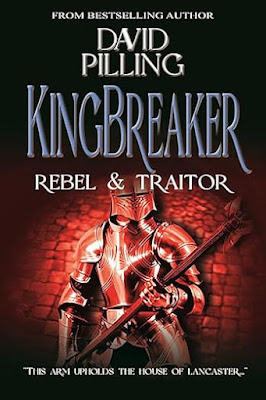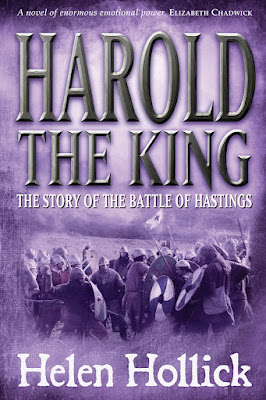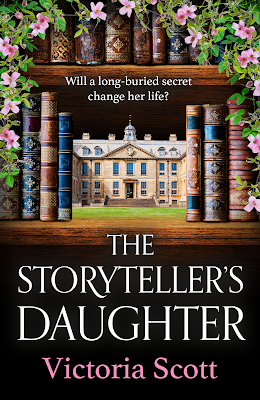In the past, my idea for a book has been born out of the project I was working on in the moment. A prime example is King John’s Right Hand Lady: The Story of Nicholaa de la Haye, which started as an article on my blog in 2015, became a few thousand words in the Warrior Heroines chapter in Heroines of the Medieval World and from there, Nicholaa was given a chapter of her own in Ladies of Magna Carta: Women of Influence in Thirteenth Century England.
nd it was as I was researching Nicholaa’s chapter for Ladies of Magna Carta that I emailed my editor and said ‘I think I have enough on Nicholaa for a book, what do you think?’ It was a short step, then, to dedicating a whole book to this incredible woman. All my previous books have developed in this way, from ideas inspired by Heroines of the Medieval World.
Until now.
The inspiration for Scotland’s Medieval Queens came primarily from a conversation with my son after his GCSE English Literature class a few years ago. Lewis was studying The Tragedy of Macbeth and was quite perturbed with the way Shakespeare had portrayed Lady Macbeth. In no uncertain terms, I was told, ‘Mum, you need to set the record straight!’
So, I got to thinking…
In the bard’s most famous drama, also known as ‘The Scottish Play’, Lady Macbeth is not even given her name. Presented as a scheming, manipulative woman, Shakespeare did as good a hatchet job on Gruoch, a royal princess in her own right, as he had on Richard III. Unfortunately, there is no society established to repair Gruoch’s reputation.
Lady Macbeth, by George Cattermole (Wikimedia Commons)
So, my son and Lady Macbeth gave me the kernel of an idea.
There is not enough information about Gruoch to write an entire book about her, but what if I start with her and develop the idea to include all of Scotland’s medieval queens? If you have read my blog, or Heroines of the Medieval World, you will know of my interest in Scottish history and, in particular, St Margaret, the women of the Bruce family and Joan Beaufort, Queen of Scots as the wife of James I. I already had the beginnings of the book.
My second inspiration was Nigel Tranter. My introduction to Scottish history had been his wonderful Bruce Trilogy, which I devoured in my early twenties; and I have since read and enjoyed every one of Tranter’s historical novels. Scottish history is fascinating! It is violent, politically charged and passionate. Being inconveniently situated on England’s northern border was never easy for Scotland, but it has made for some great stories over the centuries.
Scotland’s story is often that of brother against brother, ambition and family rivalries causing feuds that threatened the stability of the crown itself. Such fissures, of course, grew and ruptured with the aid of English interference and encouragement. The King of England was always happy to play one side off against the other if it weakened Scotland’s position.
And Scotland’s medieval queens, be they Scottish, English, Danish or French, formed a big part of that story.
More often than not, these disputes north and south of the border were resolved in peace treaties, sealed by wedding bells. A number of English princesses and noblewomen found themselves married to Scotland’s kings as a consequence.
The longest period of peace between the two countries was in the thirteenth century, when Henry III’s daughter, Margaret, married Alexander III, King of Scots. It is probably unsurprising, given the history between the two countries, that the long peace was shattered by the death of Alexander’s granddaughter Margaret, the Maid of Norway, which gave Edward I of England the opportunity to direct Scotland’s affairs. Little Margaret’s death left the Scots throne vacant, with thirteen Competitors vying for the crown, staking their claims as Edward acted as adjudicator.
Suffice it to say, Scotland’s turbulent history is often linked with that of England.
If my son’s pleas and my love for Scottish history were not enough to persuade me to write a book on Scotland’s queens, Outlaw King would certainly have tipped the balance. The 2018 film that told the story of Robert the Bruce’s fight to become King of Scots all but ignored the contribution of women to the Bruce’s story. And yet the role of women, of the king’s wife, daughter, sisters and the brave Isabella MacDuff, Countess of Buchan, was indeed significant. Their suffering at the hands of Edward I is legendary. Outlaw King ignores practically all of it – and all of them.
Scotland’s Medieval Queens aims to put the women at the forefront of Scotland’s story, to highlight their role and influence on Scottish history and on Scotland’s kings, culture and landscape. These women, however, did not act wholly independently, so while this book brings their actions into the limelight, it will be always within the context of the wider story of Scotland, from the eleventh to the fifteenth century.
Aurhors often say their book was ‘a labour of love’ but I have to say, I thoroughly enjoyed every minute of writing Scotland’s Medieval Queens. They were strong, intelligent women who faced their challenges head on. They didn’t always make the right decisions – but who does? But they fought – for their families and their country. Each and every one of Scotland’s Queens was an inspiration and I feel honoured to have had the opportunity to tell their stories.
Sharon Bennett Connolly
# # #
About the Author
Sharon Bennett Connolly is the best-selling author of historical non-fiction. Her latest book, Scotland’s Medieval Queens, will be published on 30 January 2025. A Fellow of the Royal Historical Society, she also writes the popular history blog, www.historytheinterestingbits.com and co-hosts the podcast A Slice of Medieval with historical fiction novelist Derek Birks. Sharon regularly gives talks on Women's History; she is a feature writer for All About History, Tudor Places and Living Medieval magazines and her TV work includes Australian Television's 'Who Do You Think You Are?' You can find out more about Sharon's books on
Amazon and follow her on
Facebook,
Twitter/X and
Bluesky





















